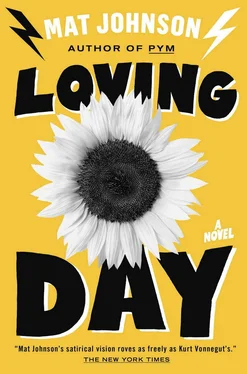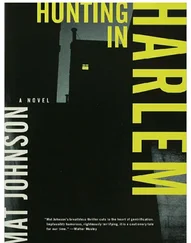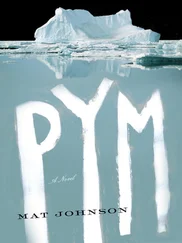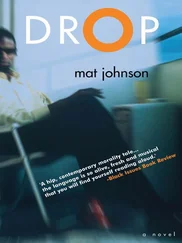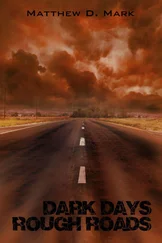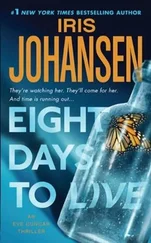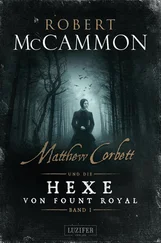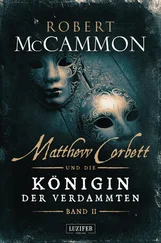“There’s nothing ‘mold-y’ about being black,” I say, and there’s laughs. It’s sparse, from the back of the room. Away from her. “And there is no such thing as ‘biracial’ in Black America. Race doesn’t even exist,” I tell her. I stand up, push the chair out with my calves. Not violently, but enough to make a screeching declaration. “There’s black, and there’s white. That’s it. It doesn’t matter if your sperm donor was a white man. That’s the reality. Was Booker T. Washington not black? Or Frederick Douglass?” There is some applause now, not overwhelming, but building. I hear a “That’s right!” pop out of the audience anonymously, so I build on that. “Or Malcolm X’s mother? His very own mother!” The crowd has decided it’s safe to show appreciation, that by clapping they may obtain freedom from racial complication. “Or Bob Marley. Bob Marley!” I hit the last name hard, let it resonate in the room. They love me even more. I hear “Get up, stand up!” and I hop onstage a bit in response, and there’s laughter. “Is there anyone here, anyone in this room, anyone in this world, who thinks that Bob Marley was any less of a black man?” I demand, and hold the reggae giant’s legacy in front of me like a shield. No one challenges it. They’re too busy clapping. But they stop looking at me. Now they look at her.
She doesn’t care. She doesn’t care at all, it’s clear. She hears them, she must feel their gaze, but she doesn’t flinch. She doesn’t raise her voice to qualify. She doesn’t laugh it off or use some other technique to deflect communal rejection. There is no bravery in her stance, because that would mean there was fear to overcome. She stands, just looking at me, undaunted, as if the crowd is mere mirage. It’s an amazing performance. She is real. She is certain. And look at her: she is free. How the hell do you get free?
“Bob Marley!” Mandingo yells in a poor imitation of a Jamaican accent.
“Get up, stand up!” his crew sings as she turns and walks back up the aisle, and the rest of the room laughs, takes to its feet. I try to laugh along. Then she looks over her shoulder and laughs too. At me. She doesn’t care.
Mandingo slaps my back and starts clapping. I’m smiling, nodding, but instead of feeling victorious I feel something of worth drain out of me with every step she takes away. The crowd joins the song, and the beat of the clapping takes up the rhythm section. Now everyone’s happy. But I look at her. I keep looking at her. She is back in her seat, the only person in the room not standing. Staring back at me, hands on her lap. As rejected as I feared I would be, and perfectly composed, at peace with it.
When the panel is finally over, when the final clapping drifts off, I stand up and head straight for the lady. I have been rude, I know, and that hurts me, so I hustle into the filling aisle. She’s almost faster than I am, has her big bag over her shoulder, moving to the exit. The straps of her white dress are made of yarn and I tap her shoulder around the fragile fabric.
“Miss, I’m sorry if I was too vehement. It’s just important to me that people understand—”
“I’m from the Mélange Center, a mixed-race community organization. You know, I do outreach to mixed speakers all the time, but I have never—” She pauses, then gives a short chuckle. Up close, partially obscured behind the curtains of her hair, there are the faint traces of acne scars, there’s the wrinkles around her neck, the imperfections of reality. But there’s also a thickness, a fullness of body and personality. As I stare, she pulls back her hair and leans in to whisper in my ear.
“You’re the worst sunflower I’ve ever seen. I feel so sorry for you,” she says. There’s so much disdain in her enunciation of the light little word, sunflower , that I look down to hide my grin at the odd imbalance.
“What the hell is a ‘sunflower’?”
“It means you don’t know who you are.”
“Well, who are you?” She rolls her eyes, pulls back her hair on the other side, and it smells like cedar and oak leaves and a place you could lie and die content. I want to tell her, you got nice pheromones . I think, Why should I not just tell her this? She may be pleasantly surprised by the news, uplifted even.
“Someone who can’t be bothered.”
“Come on, I’ll buy you lunch and I’ll let you spend the time trying to convert me.” Her response is a backhanded raised finger, pumping in the air as a parting farewell. It’s an obscene display. Fist pumping high, middle finger pointing to the ceiling, bracelets and baubles jingling.
What makes you see a stranger, just that flash of image of their outer persona, and decide instantly that they can save you? I fall in love every day like this. I’m a functional moron.
Back at my foldout table, I now have a waiting queue. My performance has earned me an audience. I do a horrible job on the sketches, rushed, uneven lines, but they don’t care. I do a horrible job because my hands are shaking and I feel nauseous, but I’m making cash money so I smile and try to ignore the sensation of falling because I know I am solidly sitting down. I look for the biracial militant walking around the room but don’t see her. I am now certain that she could have rescued me. I don’t know what from, but that could be part of the danger. I look for her again and tell myself if I see her I will apologize once more, but better. I will tell her I’m sorry and renounce my negritude and carry the biracial banner if she will absolve me. By absolve , I mean hold me. Just hold me. I haven’t been held, not since Becks, not since the one when her things were already in the lorry. She will do this and then when she lets go I will be whole again. This makes sense in my head, the transcendent potential of me hugging the crazy lady. But I don’t see her. Or I’ve already forgotten what she actually looks like. About an hour in though, I do look down my line and see that teenage girl is there again, with her copy of my book. When she finally gets to the front of the line, I have my Sharpie ready to giver her an autograph blessing.
“Saw you reading my stuff, you must have read the whole thing since you got here,” I tell her. Good, non-flirtatious chatter. Her grandfather has his wrinkled hand tightly on her shoulder, forcing her forward. “Whom do I make it out to?” I ask her.
“No one. Do you remember Cindy Karp?” she asks me.
“Do you spell that with a c or a k ? I never know,” I tell her, and take her copy, looking for the title page.
“No. Do you remember, eighteen years ago, a girl named Cindy Karp? Did you ever date a girl by that name?” she asks me again, and yanks my pen right out of my hand before it hits the page. I don’t know who she’s talking about, but I no longer feel like I’m falling. I feel like I’m landing, on something hard. The crackhead in my father’s foyer last night, staring up the stairs, flashes in my memory for no reason. Only when I look back up at the old man’s face over the teenager’s shoulder do things once again become lucid.
“Do you remember Cindy Karp. Who you slept with?” comes out of the young woman’s mouth. I look at her, and I do remember Cindy, oh God I do, and it’s like this girl is one of Cindy’s classmates, not a year accumulated, frozen, waiting in Philly to damn me. But the girl’s tone is not accusatory. It is scared. Desperation vibrates her vocal cords.
I grab the hand with the pen, and I look up at her. I look in her face, I really look in it. I do not see Cindy Karp, except in the little pimples around her hairline that all teens must have. I don’t see Cindy Karp, but I am no expert, because I don’t even remember what Cindy Karp looked like. What I do see, though, I recognize. I see my dad. I keep looking at her face. She lets me, connects her eyes with mine this time and lets me hold the gaze. And then I see my mom. I really see her, for the first time in twenty-four years. And then I start to cry. Just a little teary in the eye, it happens before I can put words to why. And I grip the girl’s hand firmer. I see my mother, and her mother, Gramma Jones, and Aunt Katie. Faces I thought were gone from existence, they are right in front of me. Jumbled all together in this tan Jewish girl in dirty jean shorts ripped at the thighs. A whole collage of high-yellow matriarch is staring back at me like the aged photos at the bottom of my dresser drawer.
Читать дальше
